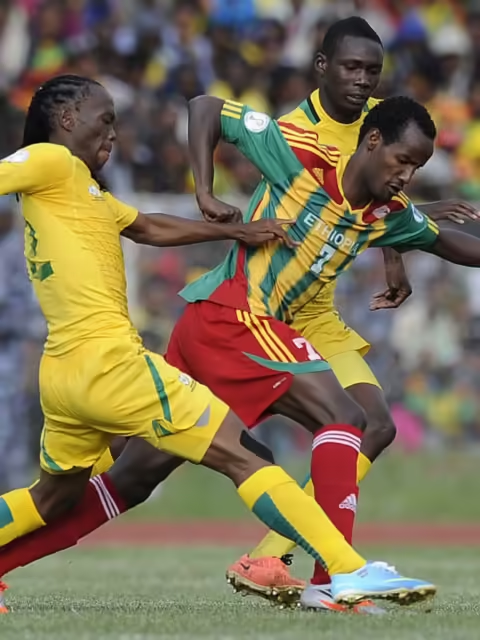Ethiopia is a country where one can find an amazing contrast of cultures, traditions and religions among a multi ethnic people.
The country, amidst its beauty, possesses colorful festivals and public events which are much loved by visitors. Many tourists prefer to book their Ethiopian holidays during the festive seasons when most celebrations take place.
Therefore I wanted to write a few things on the more colorful celebrations, on when, how, and why are they celebrated by Ethiopians.
The Ethiopian New Year – Sept 11th
Following the Julian calendar, Ethiopia is seven and half years behind the western calendar and its new year falls in the month of September.
Once the rainy season has ended, the sun comes out to shine all day long, creating an atmosphere of dazzling clarity and fresh clean air. The highlands turn green and gold as the Meskel daisies burst out in their entire splendor.
On 11th September early morning, the new-year is announced by little girls singing the song Abeba-ye-hosh (meaning do you see the blooming flowers?) in their respective villages whilst the boys give paints to each household as their new year wishes. Adults are expected to respond by rewarding gifts to the children.
This is the most special and important day, in which Ethiopians start the year with a new spirit, freshness, excitement and good expectations.
Meskel – The Finding of the True Cross – Sept 28th
Meskel (the finding of the true cross) falls on 28th September each year and has been celebrated in Ethiopia for over 1,600 years. The word Meskel means “Cross” and the feast commemorates the discovery of the cross (upon which Jesus was crucified).
As the legend tells, it was found on 19 March, AD 326, by Empress Helena, the mother of Constantine The Great.
The festival coincides with the mass blooming of the golden yellow ‘Meskel daisies’, a flower called ‘Adey-Abeba’ in the Amharic language.
A large bonfire is lit in Meskel Square and this is repeated all over the country in churches and small neighborhood groups.
Bonfires are built topped by a cross to which flowers most commonly the Meskel daisy are tied. Priests don their full regalia and people of all ages are seen in the streets carrying fresh bunches of yellow flowers.
After the bonfires are blessed, they are lit and the dancing and singing begins around them. The feasting and the celebrations continue the night and well into the next day.
If you wish to be part of this great celebration the best places that I recommend are Addis Ababa, Gonder, and Axum.
The Great Run – Nov 18th
It is not a religious holiday but a big running event among the biggest and first of its kind in Africa, held in the month of November every year.
This event was pioneered by Haile G. Sillassie, the greatest long distance runner in the world and most famous for his numerous athletic records. People of all ages numbering 25,000 or more participate in this great international event, counting it as a great joy and privilege to run with world class athletes.
Besides the joy of running, people have a lot of fun in this event. One can see people with different skills showing their abilities, telling jokes, singing songs and all manner of funny things. The other nice thing about this event is that everyone receives a medal for his/her participation, but to do so, they have to finish the race.
Genna – Ethiopian Christmas – Jan 8th
The birth of Christ also known as Genna in amaharic, is a colorful festival celebrated by all Christian people in the country. Especially at Lalibela, there is a spectacular view of priests surrounding the church and donning their colorful priestly robes praising and celebrating the birth of Christ.
At Lalibela a vivid colorful ceremony accompanied by dances and the hymns of the priests take place and unfolds before your eyes.
Traditional hockey games, horse racing and feasts of tej, tella, and doro-wot (Ethiopian traditional beers and meats) make the day more colorful.
Timket – Ethiopian Epiphany- Christ’s Baptism – Jan 20th
Timket in remembrance of Christ’s baptism by John the Baptist is the greatest festival of the year falling on the month of January two weeks after the Ethiopians Christmas.
Hundreds of thousands of people gather at Janmeda (the largest square in Addis) for singing, dancing and to receive a blessing from the patriarch. The Church tabots (so called replicas of the Arc of the Covenant) are taken to a nearby body of water on the afternoon of the eve of the festival.
Dramatic and colorful processions happen during the night; ringing of bells and bowling of trumpets and swinging bronze censors all mixed together make the day most colorful. The tabots rest in their special tents in the meadow each hoisting a proud banner depicting the church’s saint.
The following morning, the crowds gather around the blessed water to have it splashed upon them. By this act the people are renewing their commitment to the faith. Then the tabots are paraded back to their churches accompanied by much singing and dancing.
Timket is held at Gonder in the bathing palace of emperor Fasiledas.











